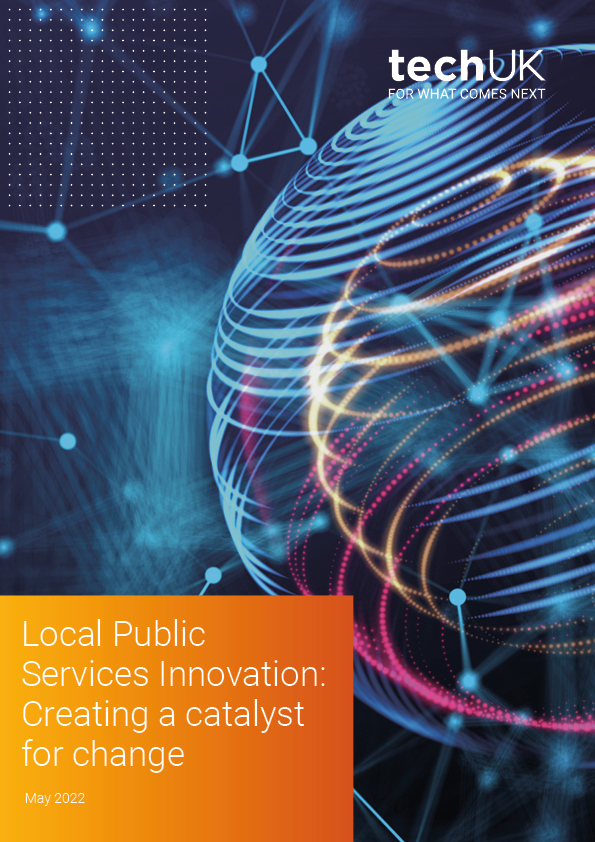Guest blog: Data-driven innovation will fail without the right foundations
Data and insights are undoubtedly amongst the most valuable assets public sector organisations possess. They can reshape how decisions are made, revolutionise service delivery and, ultimately, transform outcomes and change lives.
It’s therefore understandable for data-driven innovation to be a major talking point across local government, healthcare, policing and the rest of the public sector. After all, it’s at the heart of so much of the digital transformation that’s taking place. I do, however, think we’re making a mistake, as we have seen several times in the public sector, for data to be considered an IT issue.
If organisations simply invest in data technology, expecting that it will be enough to set the organisation on the path to becoming data-driven, things will go wrong. We shouldn’t downplay the importance of technology – it’s a critical enabler that allows the analysis, storage, visualisation, and sharing of data – but successful data-driven innovation requires the fundamentals of technology, people and processes together – underpinned by the vital element of culture. Get these right and a modern, genuinely data-mature organisation will flourish.
My colleague Rich Walker, Partner for data and insights at Agilisys, got this spot on in an interview for an article in the Times/Raconteur. “How you get more out of your data and use it to make better decisions for better outcomes does not start with technology,” he explained. “You first need to understand what you want to get out of it. Then you need to put in place the additional foundations of leadership, culture and skills; technology will fail unless you apply the fundamentals.”
Bolton Council and the work to create its data strategy is a good example of this holistic thinking in action. Speaking on a recent Agilisys podcast about the development of Bolton’s data strategy, Emily Brook, Assistant Director for Strategy and Partnerships at Bolton Council said: “Our data strategy work came out of the need to develop our digital foundations. As a council we are very much minded towards public sector reform and trying to reposition our role strategically and deliver services differently. Any public sector organisation will struggle to make that change without understanding its organisational data – it’s like knowing where you want to go without knowing how to get there and can hold back innovation.”
Crucially, this data strategy work didn't just focus on people in analytical roles, who are working with data. It also considered the wider organisation, those data consumers and how they use data and insight in their roles. It’s driving the culture of understanding how to read, reuse, and share data across the organisation for better value. That culture unlocks new delivery models – and will drive organisational data maturity.
As I’ve already touched on, many different foundational elements can contribute to data maturity and building capability in each of these areas can strengthen the overall capability of your organisation. By doing so, organisations can get to the stage where they are comfortable committing to data transformation, knowing returns will follow, meaning maximum value will be extracted from the data they hold. It’s about being able to prioritise the most data most valuable to you: the data that enables you to make the key decisions and the right interventions, with an organisation set up to turn those priorities into real change for citizens and staff on the frontline.
Adult social care is a good example. By understanding the demand that's potentially going to come through a local authority’s front door – and when it going to arrive – could you initiate actions that either prevent that demand coming through the door in the first place, or signpost it to other, more suitable ways of dealing with it? That’s likely on top of improving the customer experience with better access to data, more accurate interventions and reduced duplication of assessments and engagement.
This is just one example of an endless stream of data-driven innovation possibilities. By implementing a data driven, proactive service approach, organisations can realise a massive return on investment financially and also, more importantly in my opinion, deliver life changing benefits to citizens across key critical services. For this to happen organisations must become genuinely data-driven to the point where unlocking the value of data becomes second nature – and that needs the right culture.
Phil Ruston, Local Government Lead at Agilisys
Local Public Services Innovation: Creating a catalyst for change
techUK, in collaboration with its Local Public Services Committee, has published a new report making the case for enhanced digital innovation adoption across the UK’s local public services to improve citizens’ lives. The report, ‘Local Public Services Innovation: Creating a catalyst for change’









